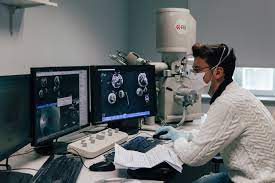Introduction
In the ever-evolving landscape of healthcare, precision medicine strategies have emerged as a groundbreaking approach that promises to revolutionize the way we diagnose, treat, and prevent diseases. This article delves deep into the world of health and precision medicine, exploring the concepts, technologies, and potential impact on healthcare.
Understanding Health in the 21st Century
Health is a universal concern that transcends geographical boundaries, cultural differences, and individual circumstances. It encompasses physical, mental, and social well-being, and its significance cannot be overstated. In today’s fast-paced world, maintaining good health is a constant endeavor, and precision medicine is here to help us achieve that goal more effectively.
Precision Medicine: A Paradigm Shift in Healthcare
Precision medicine is a revolutionary approach that tailors medical care to the individual characteristics of each patient. Instead of employing one-size-fits-all treatments, precision medicine takes into account a person’s genes, environment, and lifestyle to provide personalized healthcare solutions. This shift from a population-based approach to a patient-centric one has the potential to transform healthcare outcomes.
Key Principles of Precision Medicine
Genomics and Genetics: At the heart of precision medicine lies genomics and genetics. Advances in DNA sequencing technologies have enabled researchers to decode the genetic information of individuals, offering insights into their predisposition to diseases and potential response to treatments.
Personalized Treatment Plans: Precision medicine allows health care providers to develop personalized treatment plans based on a patient’s genetic makeup. This approach minimizes adverse effects and maximizes treatment effectiveness.
Early Detection and Prevention: By identifying genetic markers associated with disease susceptibility, precision medicine empowers individuals to take proactive measures to prevent illnesses before they manifest.
Tailored Therapies: Precision medicine is particularly promising in the field of cancer treatment. Targeted therapies can be designed to attack specific genetic mutations driving the growth of cancer cells, reducing harm to healthy tissues.
Applications of Precision Medicine
Precision medicine is not limited to a single medical specialty. Its applications are far-reaching and include:
Oncology: In cancer care, precision medicine has led to remarkable breakthroughs. Genetic testing can identify mutations that drive cancer growth, allowing for the development of highly effective targeted therapies.
Cardiology: Tailored treatment plans for heart diseases are becoming more common, addressing individual risk factors and genetic predispositions.
Neurology: Precision medicine is making strides in the diagnosis and treatment of neurological disorders, such as Alzheimer’s disease and Parkinson’s disease.
Pharmacogenomics: This field focuses on how an individual’s genetic makeup influences their response to medications. It can help avoid adverse drug reactions and optimize treatment efficacy.
Challenges and Future Prospects
While precision medicine holds immense promise, it also faces challenges like data privacy concerns, accessibility issues, and the need for further research. However, ongoing technological advancements and collaborative efforts within the healthcare industry are expected to overcome these obstacles.
In the future, we can anticipate:
More Personalized Healthcare: As precision medicine continues to evolve, healthcare will become increasingly tailored to individual needs, leading to better outcomes and patient satisfaction.
Improved Disease Prevention: Early detection and prevention strategies will become more effective, reducing the burden of chronic diseases on individuals and healthcare systems.
Enhanced Drug Development: Pharmaceutical companies will use genetic information to develop drugs that are more effective and have fewer side effects.
The Human Element in Precision Medicine
Amidst the technological advancements and scientific marvels that underpin precision medicine, it’s crucial to remember the human element. This approach empowers individuals to actively engage with their own health, providing them with valuable insights and actionable information.
In the realm of precision medicine, patients are no longer passive recipients of care; they become informed partners in their own well-being. Genetic counseling becomes a vital component, where experts help individuals interpret their genetic data and make informed decisions about their healthcare.
Ethical Considerations and Privacy Concerns
As with any transformative innovation, precision medicine raises ethical questions. Issues surrounding consent, data security, and potential misuse of genetic information are at the forefront. Striking the right balance between leveraging genetic data for medical advancements and safeguarding individuals’ privacy rights is a critical challenge.
Regulatory frameworks and industry standards must evolve to ensure that the benefits of precision medicine are accessible to all while maintaining the highest ethical standards.
Breaking Down Barriers to Access
One of the most pressing concerns in the adoption of precision medicine is ensuring equitable access for all individuals, regardless of their socioeconomic status or geographic location. Efforts are underway to address these disparities, from increasing awareness and education to implementing policies that prioritize accessibility.
Telemedicine and digital health platforms play a crucial role in making precision medicine more accessible, allowing patients to consult with specialists and access genetic counseling from the comfort of their homes.
The Role of AI in Precision Medicine
Artificial intelligence (AI) is a linchpin in the implementation of precision medicine. Machine learning algorithms analyze vast datasets, extracting valuable insights that can guide treatment decisions. AI-driven tools assist healthcare providers in interpreting genetic information, making predictions about disease risk, and recommending personalized interventions.
By harnessing the power of AI, precision medicine is poised to become even more refined and effective, pushing the boundaries of what is currently possible in healthcare.
Collaborative Research and International Efforts
Advancing precision medicine requires a collective effort from the global scientific community. Collaborative research initiatives and international partnerships are driving progress in understanding the genetic underpinnings of various diseases.
Open data sharing and collaboration among researchers, healthcare providers, and pharmaceutical companies are fostering an environment of discovery and innovation, accelerating the development of targeted therapies and personalized treatment approaches.


